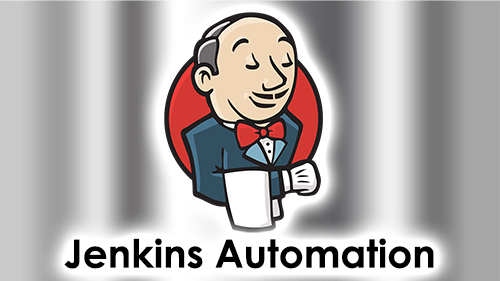Find out the best information on the open source software, Jenkins. Get the most out of Jenkins with this step-by-step guide. From basics to best practices, this guide covers everything you need to know about Jenkins Automation Software.
Jenkins Explained: Video Talkthrough
What is Jenkins Software?
Jenkins is a popular open-source automation software that provides a platform for continuous integration and delivery (CI/CD) of software applications. It is widely used by organizations of all sizes to automate various aspects of the software development and delivery process, including building, testing, and deploying code.
Introduction to Jenkins
Jenkins is an open source automation server, which helps to automate parts of the software development process. It is a Java-based tool that provides a continuous integration and continuous delivery (CI/CD) solution. Jenkins helps to automate tasks such as building, testing and deploying software. This helps to speed up the software development process and ensure that the software is of high quality.
Why use Jenkins?
There are several benefits of using Jenkins for software development:
- Automation: Jenkins automates tasks such as building, testing and deploying software, which saves time and reduces the risk of errors.
- Continuous integration: Jenkins provides a continuous integration solution, which helps to ensure that software changes are integrated and tested regularly. This helps to catch problems early in the development process, before they become big issues.
- Customizable: Jenkins is highly customizable and can be used for a wide range of software development tasks. It has a large library of plugins that can be used to extend its functionality.
- Open source: Jenkins is open source software, which means that it is free to use and can be modified to meet specific needs.
How does Jenkins work?
Jenkins works by using a server to build, test and deploy software. When software changes are made, Jenkins automatically builds and tests the software. If the tests pass, the software is deployed. This process is repeated regularly, ensuring that the software is always up-to-date and of high quality.
Setting up Jenkins
Setting up Jenkins is straightforward and can be done in a few simple steps:
- Download and install the Jenkins server.
- Configure the Jenkins server to suit your needs. This includes setting up build and test processes, and choosing which plugins to use.
- Create a Jenkins job to automate the software development process. This involves specifying the steps that Jenkins should take, such as building, testing and deploying software.
- Monitor the status of the software development process using the Jenkins dashboard. This helps to ensure that everything is running smoothly and to catch any issues early.
Conclusion
Jenkins is a powerful tool for automating the software development process. It helps to ensure that software is of high quality and that changes are integrated and tested regularly. Setting up Jenkins is easy and can be done in a few simple steps. Whether you are a small development team or a large enterprise, Jenkins can help you to streamline your software development process and improve the quality of your software.
Jenkins FAQ
- “What is Jenkins Automation Software?”
- “Why use Jenkins for automation?”
- “How does Jenkins Automation work?”
- “What are the benefits of using Jenkins Automation?”
- “How to install Jenkins Automation?”
- “What are the features of Jenkins Automation?”
- “How to configure Jenkins Automation?”
- “What are the plugins available in Jenkins Automation?”
- “How to integrate Jenkins with other tools?”
- “What is the role of Jenkins in DevOps?”
- “How to use Jenkins for CI/CD?”
- “What are the best practices for Jenkins Automation?”
- “How to troubleshoot Jenkins Automation errors?”
- “What are the common problems in Jenkins Automation and how to fix them?”
- “How to upgrade Jenkins Automation?”
- “What is the future of Jenkins Automation?”
- “How to secure Jenkins Automation?”
- “What are the alternative tools for Jenkins Automation?”
- “How to migrate from other automation tools to Jenkins?”
- “What are the real-world use cases of Jenkins Automation?”
Images Are Commercial Use Allowed

